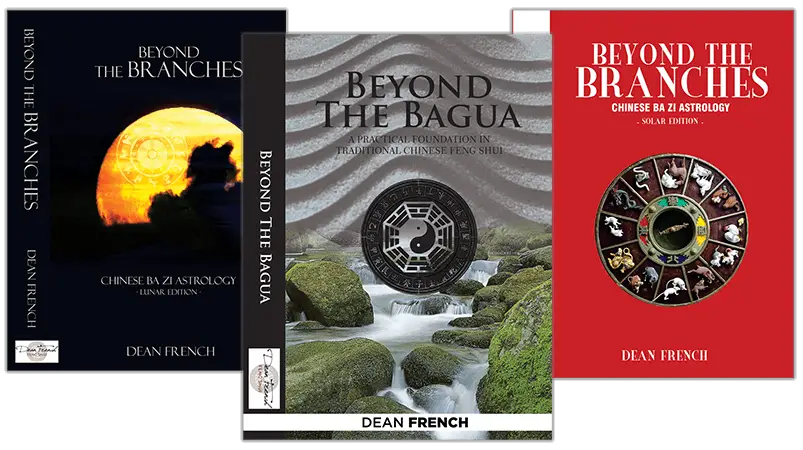Law of Attraction vs Law of Karma - Who Will Win?
Part 1 The Contender: The Law of Attraction
We all know that when we want something, the Law of Attraction tells us ‘like attracts like.’ But what is the meaning of this? And how do you apply it in your life to manifest what you desire?
What Is The Law Of Attraction?
This law is straightforward, as it states that ‘like attracts like’, and the theory behind it is that thoughts are things. If you think about something, then that idea or object will appear in your life. Similarly, if you focus on not having something, the law of attraction states that you won’t have it.
This law is straightforward, as it states that ‘like attracts like’, and the theory behind it is that thoughts are things. If you think about something, then that idea or object will appear in your life. Similarly, if you focus on not having something, the law of attraction states that you won’t have it.
How Does It Work?
We are surrounded by energy in our universe, and when you think about something, you can emit brain wave frequencies that support you, or like many people, a frequency that creates self-doubt.
When you think about what you want, you emit a positive frequency, which attracts more people and opportunities, which means more of the same.
However, if you keep thinking about what you do not want, that sends out a negative frequency and will just attract more of the same. In Chinese Astrology, someone with Mo Yuk Lifecycle has the unfortunate characteristic of knowing what they Don’t Want in life, but are always searching for what they Do Want.
The Law of Attraction theory is that the universe will answer your requests if you can communicate with it correctly, however this thinking has to be done humbly and not in a demanding way, or else the universe will manifest the things you do not wish to.
The 3 Parts of The Laws of Attraction
Generally, the law of attraction is about putting your attention on what you want. However, there are three crucial parts to this. They include:
- Intentions: This means you should start with the end in mind and know what exactly you want, down to the smallest of details. This will allow you to create a clear image of what exactly you want in your life.
- Feelings: You must feel what it would be like if you actually had the things you want. If your thoughts and images are not accompanied by a strong sense of feeling, then it will not work.
- Actions: If you want things in your life to change, then you need to act and do something about it. Thinking about what you want will only go so far without positive action.
Where did the Law of Attraction come from, And How Popular Has It Become?
The law of attraction was first introduced by author Prentice Mulford who wrote about it back in 1904. The concept was later developed in 1906 by William Walker Atkinson, who presented it in his new thought movement book “Thought Vibration or the Law of Attraction in the Thought World.”
The law of attraction really gained momentum when Joseph Murphy wrote a book called “The Power of Your Subconscious Mind.” In this book, he talks about using the law of attraction to achieve what you want in life.
In 1962 another book was published called “The Secret” by an Australian author named Rhonda Byrne. In this book, she talks about how to use the law of attraction to manifest your desires.
The Secret was made into a documentary film in 2006 and has since become one of the most popular self-help books ever written. There are even entire markets, training courses and community groups that have started up around this book.
Part 2 The Champion: The 12 Laws of Karma
There are a multitude of perceptions of what karma is – various misconceptions about how karma applies to our lives and way of living, but in essence, the term karma is used to mean deed, action or work.
A lot will come into mind when referencing karma in relation to the spiritual principle of cause and effect. It refers to the actions of an individual that influences the future of that individual.
For instance, you may come across everyday conversations that include phrases like, “what goes around comes around.” And from the principle of karma: “Good intent and good deeds contribute to good karma and happier rebirths,” while “bad intent and bad deeds will contribute to bad karma and bad rebirths.”
Understanding karma in this concept presents a form of universal justice. It will translate to the perception that there are consequences that follow accordingly for good and bad actions. Everything an individual does, good or bad, will create a response.
Understanding the 12 Laws of Karma
To understand the relationship between one’s action or causes and effects, you should look at Law 1, but there are 11 other laws of karma that you should know what they mean. These laws are have an impact on you throughout your life, and following them helps to create good karma every day.
1. The Great Law -
Also widely known as the law of cause and effect, it’s indeed a Great Law that makes it clear that whatever you put into the world will come back to you. It shows that whatever actions, thoughts or energy you give out, you will receive back. It exhibits that if you want happiness, love, generosity, or peace, you have to show these yourself and treat others in this way.
Similar to the law of attraction statement “like attracts like”, if you are a kind person, you will attract kindness. In other words, what you will give out there is also what you will receive. The First Law of Karma tends to be oversimplified into Good vs Bad.
2. The Law of Creation -
When you apply the Law of Creation in your life, it’s apparent that you need to actively play a role in your life if you want to get what you desire. You simply don’t wait for things to happen to you.
You should aim at a particular desire and push yourself to achieve what you want in life. In addition, you have to scrutinize your environment for ideas concerning what you want. If life doesn’t look the way you want to or offer what you want, don’t give up; look within.
Feng Shui and Chinese astrology are two powerful tools to help you create the perfect environment for action and learn how to receive the best from your personal Chi.
3. The Law of Humility -
This karmic law is based on the principle that you must be humble enough to accept that the situation you are in and is a result of your past deeds. So to change something in your life, first you have to accept the situation you are currently in, you have to start with where you are to change anything.
4. The Law of Growth -
This karmic law teaches that you have to focus on your own development before changing others or controlling your surroundings. The keys to growth are in your hands because every change starts with you.
5. The Law of Responsibility -
The Law of Responsibility is a must when you think of either the Laws of Karma or the Law of Attraction.
It helps many people keep in mind that they are the source of what happens throughout their journey. What is happening in your vicinity is a reflection of what is happening within you. It’s hard to control everything that happens to you. However, you have to take responsibility for how you respond to occurrences or things.
6. The Law of Connection -
We are all connected in some way to everything around us and our past, present and future. Whatever you experienced a few years ago makes you who you are today and will influence who you become tomorrow.
This will include the things you have done or who you have interacted with. Everything in your life is connected and will have an effect on yourself and your environment.
7. The Law of Focus -
According to the Law of Focus, you have to pay attention to one thing in life to do better. Put your energy, time and attention toward one thing at a time. You will accomplish more when you focus on one thing, whether it is a task, thought or goal. Finish one thing before you start the other, and you will keep things in line.
8. The Law of Giving and Hospitality -
The law of karma focuses on being generous towards others. You have to practice what you believe in, especially when it comes to giving to others. It’s about ensuring you walk the talk. Follow your beliefs with the right actions.
Donating your time, money or worthwhile goods are all ways to cultivate positive Karma in your life.
There are even Buddhist date selection methods in Chinese Astrology that help you find the best days that help others the most.
9. The Law of Here and Now -
This karmic law is about living in the present, leaving behind the past and stop dwelling on the future. The present is all you have, and you should embrace it by letting go of the past negative behaviours, beliefs and thoughts. It spurs you to live in the present moment and appreciate every chance you get.
10. The Law of Change -
The changes you embrace give you a new perception of life and a path towards growth. You will accept to grow or become a better version of yourself if you accept change. You can be free from past deeds or patterns.
11. The Law of Patience and Reward -
This law of karma states that to get any reward you have to work hard, be patient, and eventually succeed. It may take you longer than you planned, but if you are consistent; your hard work will pay off. If you find joy in working hard, you will enjoy the fruits of your labor.
12. The Law of Significance and Inspiration
This karma law tells us that we have to share our unique gifts with others to make an impact. Your contribution or value to the world is essential, no matter how small it may be or seem. Every action you take will have a significant impact on those around you and the world in general.
And the Winner Is...
In my personal journey, I’ve come to the conclusion that the “Law of Attraction” is a simplified, or watered down version of the “12 Laws of Karma”.
Looking at the rules within the Law of Attraction –
Intentions = A mix of 1. The Great Law and 7. The Law of Focus.
Feelings = A mix of 4. The Law of Growth and 10. The Law of Change.
Actions = A mix of 2. The Law of Creation, 9. The Law of Here and Now and 10. The Law of Change.
In the western world, there are certainly many more adherents to the Law of Attraction than the Law of Karma, but living in only a small part of the bigger picture can make us smaller beings.
In my mind, Karma teaches us a lot of things that impact our lives negatively or positively. Whatever you do affects those around you in one way or another. You won’t regret following the 12 Laws of Karma as they do far more for your life than simply promote positive actions and thinking.
Feng Shui and Karmic Resources
Learn the Ancient Chinese Arts of Feng Shui, Lunar Chinese Astrology, and Solar Chinese Astrology with Dean’s Comprehensive Bundle!
Get everything you need to start learning these ancient arts in one convenient bundle. This bundle includes detailed course notes and examples covering everything from the basics of Feng Shui to the more advanced concepts of Lunar Chinese Astrology and Solar Chinese Astrology.
They are clear, concise, and easy to follow, especially for beginners. You’ll learn everything you need to know to improve your life with the help of these ancient arts.
Limited time offer: Get a $150 bundle discount ($747 down to $597) when you purchase all three courses today!









One thought on “Law of Attraction vs Law of Karma – Who Will Win?”
It is really brilliant to see a juxtaposition of two powerful principles. I have read Joseph Murphy’s book and even began practicing the principles stated in it. I had always known that they had a connection and this really simplifies that. I’ve been living my best life applying Feng shui and the chinese zodiac to be able to carry out each principle. I hope others can learn to as well